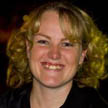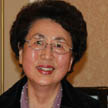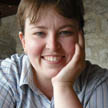I’m a Scientist is like school science lessons meet the X Factor! School students choose which scientist gets a prize of $1000 to communicate their work.
Scientists and students talk on this website. They both break down barriers, have fun and learn. But only the students get to vote.
This zone is the Disease Zone. It has scientists studying the causes and processes of illness . Who gets the prize? YOU decide!









Dear Sarahb; While I was in Korea and work at a university as a professor, we were asked to take 3 roles; teacher, researcher, and advisor. As a teacher, we were asked to give good lectures. As researcher, we were pushed to publish as many papers as possible, There were incentives given according to number of publications, beside the regular salary. We take certain number of students(undergraduate and graduate students) in our care until they graduate as thesis/dissertation advisor and counselor in general.
Teacher/professor and student relationship in Korea is pretty close. Many of my former students still send me e-mails, they invited me to dinner 2-3 times a year while I was at home, etc. Last June, five of them came to Nepal(they said they came to see me, partly) for tracking and asked me to join them.
0
Ok! Might be a long answer….
I knew I loved science from when I was a kid. I did biology, chemistry, physics and maths all for my HSC course. I also knew I wasn’t good with blood or open wounds, so didn’t want to be a docter, but liked to learn about diseases and how to cure them.
So, I decided to study biomedical sciences (started in 2000). During that study, we learned all about the human body, how cells work, how DNA works etc. In 2004, I did 2 years of a Master of Science. For us, that meant that we had to do 2 different research projects in different labs, to get some experience (we have no honours system in Holland, it’s straight from Bacherlor to Master).
For my master of science course, I worked in a lab that looked at salmonella bacteria for the first year (in Holland), and then flew to Sydney to do a research project on schizophrenia in rats!
I continued with a PhD from 2006-2009, looking at Alzheimer’s disease using mice.
After I finished (hooray!), I got a job at the garvan institute of medical research in Sydney. My boss/supervisor wanted me to investigate how this drug worked. She had found that mice that take a drug called an iron chelator, don’t get fat on a high fat diet (McDonalds diet). So one by one, I looked at different organs and tissues in these mice to pinpoint how this drug was working. I first found that the drug was working in the brain. There is a small area in the brain called the hypothalamus and this regulates your food intake, body temperature, metabolism etc.
Then, we slowly discovered that it was the activated brain that told the fat tissue in the body to burn more fat! I have been working on this project now for just over 2 years. Lots of work!
0